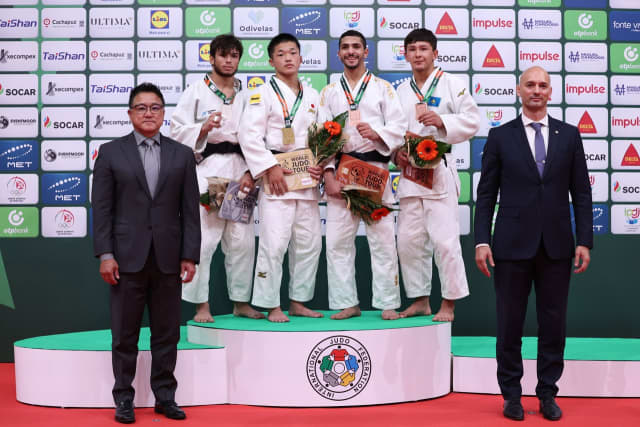Once again, the presence of the Japanese in the final is a surprise without really being one. If Fukuda was not among the top seeds with only an 84th place in the world ranking, everyone knows that Japanese judoka are rather discreet on the junior circuit, only coming out on big occasions, like these world championships. This does not prevent them from presenting a team which is a scarecrow for the other nations. The final between Imranov and Fukuda therefore promised to be very interesting.
It can not be said that there was no attack in the final. Both competitors were on the move all the time, attacking almost non-stop, especially Fukuda who actually pushed Imranov to be penalised twice. Then Fukuda scored a waza-ari and had to keep a high pace not to succumb to his opponent’s rhythm. In the end, it was the more active judoka and in fact the one who scored who won the title and the second gold medal for Japan, already.
Samy Youssry (EGY) had an excellent tournament and qualified with great dynamism for the first match for a bronze medal, against Zamohshari Bekmurodov (UZB). The normal time remained penalty-free as both judoka showed great commitment and tried to throw. However, as soon as the golden score period started, Bekmurodov was penalised for stepping out and Youssry for a false attack. With Samy Youssry receiving a second shido, things started to be a little tricky for the Egyptian judoka. Under pressure, Samy Youssry managed to apply an opportunist’s ko-uchi-gari for waza-ari and with that he earned a beautiful bronze medal for Egypt.
Kazakhstan with Talgat Orynbassar (KAZ) and Georgia with Kako Chapurishvili (GEO) offered themselves a first chance of a medal. The contest began in a wrestling style but it was with two brilliant pure judo techniques that Talgat Orynbassar won the medal. A first waza-ari came from a ko-uchi-gake followed immediately by an ippon with a seoi-nage. The bronze medal was for Talgat Orynbassar.









